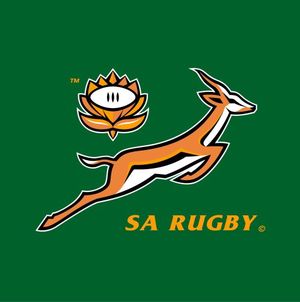
NEW YORK, NY – Yesterday we unleashed our 2016 Southern Hemisphere Player To Watch list. Just like we did for 2016 classes of USA, Canada and Europe with the players now taken care, it is time for us to release our clubs (that is provinces and franchises), coaches and administrators watchlist. One thing about this year’s group is that there were was a lot of overlap. Rather than select a franchise we selected a coach and rather than select a coach we selected a union. Trying to keep the list from not being too long, we often had to very selective in out choices.
CLUBS
![]() Blues: The Blues were selected because the organization is such a disappointment. The Blues Super Rugby region covers over 1 million populace. That is a quarter of the New Zealand population, yet they are struggling as a franchise to win games and be relevant. They have been one of the worst Super Rugby franchises for the past few years. They still produce players that move on to the All Blacks and show their ability but this is rarer and only makes people wonder, why a player of this magnitude is struggling at Super Rugby level. New coach Tana Umaga has got a hell of task in front of him but the back office rot needs to be fixed if he and the franchise is to thrive.
Blues: The Blues were selected because the organization is such a disappointment. The Blues Super Rugby region covers over 1 million populace. That is a quarter of the New Zealand population, yet they are struggling as a franchise to win games and be relevant. They have been one of the worst Super Rugby franchises for the past few years. They still produce players that move on to the All Blacks and show their ability but this is rarer and only makes people wonder, why a player of this magnitude is struggling at Super Rugby level. New coach Tana Umaga has got a hell of task in front of him but the back office rot needs to be fixed if he and the franchise is to thrive.
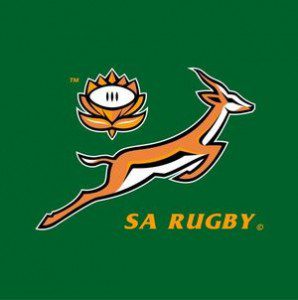 SA Super Rugby sides: When the poor performances of former Springbok head coach Heyneke Meyer was brought up, a common reply from his supporters were to look what he has to work with. A valid point when you consider the overall poor performance of the SA Rugby conference. Looking forward to 2016 and the longest serving coach is the young Johan Ackermann, a member of our 2015 class. With four coaches going into their first year of Super Rugby coaching and only Ackermann and Sharks head coach Gary Gold (2 years) being the elder statesmen is shocking. The talent is there for each franchise as South Africa is second only to New Zealand when it comes to producing world class players. However, it will be tough to see these clubs generate a proper competitive conference like New Zealand. In all likelihood it will be a battle of attrition and once again and a team with a poor record or clearly not as good as their Australasian counterparts ends up in the playoffs, where they try but lose in the end because they and their conference are simply not good enough.
SA Super Rugby sides: When the poor performances of former Springbok head coach Heyneke Meyer was brought up, a common reply from his supporters were to look what he has to work with. A valid point when you consider the overall poor performance of the SA Rugby conference. Looking forward to 2016 and the longest serving coach is the young Johan Ackermann, a member of our 2015 class. With four coaches going into their first year of Super Rugby coaching and only Ackermann and Sharks head coach Gary Gold (2 years) being the elder statesmen is shocking. The talent is there for each franchise as South Africa is second only to New Zealand when it comes to producing world class players. However, it will be tough to see these clubs generate a proper competitive conference like New Zealand. In all likelihood it will be a battle of attrition and once again and a team with a poor record or clearly not as good as their Australasian counterparts ends up in the playoffs, where they try but lose in the end because they and their conference are simply not good enough.
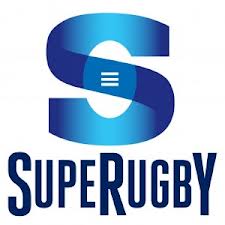 Super Rugby Expansion sides: The expansion of Super Rugby into Japan, Argentina and 6th South Africa franchise excited people at first. Super Rugby is arguably the best international “club” competition and the fact that it was spreading its wings to developing rugby nations was great. SA had wanted a 6th team, the Kings, for a long time, Argentina got a team and Japan got a team. However, in practice each team has caused a large amount of concern and question. The financial dysfunction and lack of professional administration by the Kings caused great concern. Japan seemingly leaving it late as possible to name a team, a coach and start training didn’t help. Argentina gave the least amount of concern though the availability certain grounds were an issue. Either way all these issues have stolen the excitement that many had for expansion, but now there are concerns of “too fast, too soon.” These teams are not expected to be competitive from their first game but a certain amount of effort and respectability in the scorelines are demanded when they face established sides. If they can do that then all is well. If not then the howls will get louder.
Super Rugby Expansion sides: The expansion of Super Rugby into Japan, Argentina and 6th South Africa franchise excited people at first. Super Rugby is arguably the best international “club” competition and the fact that it was spreading its wings to developing rugby nations was great. SA had wanted a 6th team, the Kings, for a long time, Argentina got a team and Japan got a team. However, in practice each team has caused a large amount of concern and question. The financial dysfunction and lack of professional administration by the Kings caused great concern. Japan seemingly leaving it late as possible to name a team, a coach and start training didn’t help. Argentina gave the least amount of concern though the availability certain grounds were an issue. Either way all these issues have stolen the excitement that many had for expansion, but now there are concerns of “too fast, too soon.” These teams are not expected to be competitive from their first game but a certain amount of effort and respectability in the scorelines are demanded when they face established sides. If they can do that then all is well. If not then the howls will get louder.
 Wellington Lions: The Lions were the bridesmaids of the NPC for a long time. Constantly making the semi-finals or the finals but never winning it. Then in 2014 they had their most disastrous NPC campaign ever which got them relegated from the top division , the premiership, to the second division the championship. In 2015, they bounced back and came within a point of winning the final and gaining promotion. We believe that in 2016, they will dominate the championship, win promotion and provide several new super rugby players to the Hurricanes for 2017.
Wellington Lions: The Lions were the bridesmaids of the NPC for a long time. Constantly making the semi-finals or the finals but never winning it. Then in 2014 they had their most disastrous NPC campaign ever which got them relegated from the top division , the premiership, to the second division the championship. In 2015, they bounced back and came within a point of winning the final and gaining promotion. We believe that in 2016, they will dominate the championship, win promotion and provide several new super rugby players to the Hurricanes for 2017.
COACHES
 South Africa – Vacant (MNT): Heyneke Meyer wasn’t getting the job done. Despite the 3rd place finish at the Rugby World Cup, his poor record against the All Blacks, his overall win percentage, style of play, and the embarrassing loss to Japan were too much to bare. There were cries that he needed more time or that though he should be gone lets work out a replacement first. In the end, Meyer stepped down rather than agree to the terms of re-hire. For all the rejoicing of the anti-Meyer clan, there is now pause for concern. This is because, we are now into February, a full two months since Meyer’s resignation and there is no indication as to who the next Springbok coach will be. The Bokke won’t be in action until early June for the mid year incoming tours but there should still be great urgency. Who ever is given this position will have less and less time to prepare and will likely be off to a terrible start to his tenure.
South Africa – Vacant (MNT): Heyneke Meyer wasn’t getting the job done. Despite the 3rd place finish at the Rugby World Cup, his poor record against the All Blacks, his overall win percentage, style of play, and the embarrassing loss to Japan were too much to bare. There were cries that he needed more time or that though he should be gone lets work out a replacement first. In the end, Meyer stepped down rather than agree to the terms of re-hire. For all the rejoicing of the anti-Meyer clan, there is now pause for concern. This is because, we are now into February, a full two months since Meyer’s resignation and there is no indication as to who the next Springbok coach will be. The Bokke won’t be in action until early June for the mid year incoming tours but there should still be great urgency. Who ever is given this position will have less and less time to prepare and will likely be off to a terrible start to his tenure.
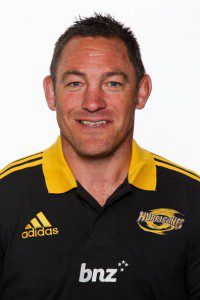 Japan –Mark Hammett (Sunwolves): Talk about a man people love to hate. Part of it Hammett brought upon himself with his “new sheriff in town” approach to running the Hurricanes from 2011-2014. He got rid of long time servants of the franchise, talked down to the media and worse of all, didn’t improve the on-field product at all, only causing division. From there, he signed a three year contract with the Cardiff Blues of the Pro 12 then left after 6 months for personal reasons. Hammett is not regarded well in New Zealand and now parts of the rugby world. He seems to be living of his Canterbury connections, his achievements as an assistant for Canterbury and recommendations from his former bosses but it is now to the point where he needs to show he has the ability to be a Super Rugby level coach or return to obscurity.
Japan –Mark Hammett (Sunwolves): Talk about a man people love to hate. Part of it Hammett brought upon himself with his “new sheriff in town” approach to running the Hurricanes from 2011-2014. He got rid of long time servants of the franchise, talked down to the media and worse of all, didn’t improve the on-field product at all, only causing division. From there, he signed a three year contract with the Cardiff Blues of the Pro 12 then left after 6 months for personal reasons. Hammett is not regarded well in New Zealand and now parts of the rugby world. He seems to be living of his Canterbury connections, his achievements as an assistant for Canterbury and recommendations from his former bosses but it is now to the point where he needs to show he has the ability to be a Super Rugby level coach or return to obscurity.
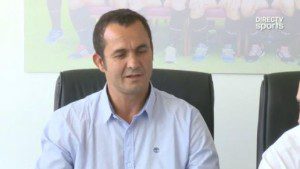
Uruguay – Esteban Meneses (MNT): Meneses was selected after a search lead by Uruguay Rugby Union chairman Sebastían Piñeyrúa and with the aid of Argentine union. Meneses joins with vast experience as the former head coach of powerful Buenos Aires clubs CUBA and La Plata . He has signed on for a two year term with the hope that he will be successful enough to lead them to the 2019 RWC. His appointment comes with strong recommendations from many, including Daniel Hourcade who coached Argentina to the Semi Finals of RWC 2015.
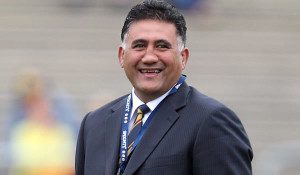 New Zealand – Jamie Joseph (Highlanders/Japan): Joseph has paid his dues in the New Zealand coaching world. He worked his way up from assistant coach at Wellington to head coach to head coach of the Highlanders. It took a few years to get the building blocks and team make-up right but he did and he led the ‘landers to their first Super Rugby title in 2015. With that Joseph popped on the coaching radar for the Japan Rugby Union and they hired him to coach Japan. However similar to the 2014 Super Rugby title winning coach Michael Chieka, he is still contracted to his Super Rugby team for one more year so he will be splitting duties and not taking over Japan until after the 2016 Super Rugby season. Joseph is familiar with Japan having played there for 5 years and representing Japan in the 1999 RWC (in addition to 20 All Black caps including the 1995 RWC). “JJ” seems excited for the opportunity and well up for the challenge.
New Zealand – Jamie Joseph (Highlanders/Japan): Joseph has paid his dues in the New Zealand coaching world. He worked his way up from assistant coach at Wellington to head coach to head coach of the Highlanders. It took a few years to get the building blocks and team make-up right but he did and he led the ‘landers to their first Super Rugby title in 2015. With that Joseph popped on the coaching radar for the Japan Rugby Union and they hired him to coach Japan. However similar to the 2014 Super Rugby title winning coach Michael Chieka, he is still contracted to his Super Rugby team for one more year so he will be splitting duties and not taking over Japan until after the 2016 Super Rugby season. Joseph is familiar with Japan having played there for 5 years and representing Japan in the 1999 RWC (in addition to 20 All Black caps including the 1995 RWC). “JJ” seems excited for the opportunity and well up for the challenge.
ADMIN
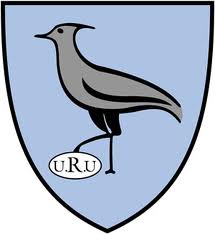 Uruguay Rugby Union: We couldn’t name a Uruguayan player in our players to watch because we didn’t have enough knowledge of the national team so we named the union here. The URU is in the midst of a massive restructuring. It doesn’t stop with the naming of a new head coach. They named former Uruguay A team and U20 coach as assistant coach along with the national team’s recently retired hooker. In addition, Los Teros legend and former head coach Pablo Lemoine was moved upstairs to become the new director of Uruguay’s high performance center. Lemoine will oversee the development of players from under 17s on-wards and will continue to assist when needed with coaching duties. These are very big changes and the partnering with the UAR shows that there is a clear goal to improve.
Uruguay Rugby Union: We couldn’t name a Uruguayan player in our players to watch because we didn’t have enough knowledge of the national team so we named the union here. The URU is in the midst of a massive restructuring. It doesn’t stop with the naming of a new head coach. They named former Uruguay A team and U20 coach as assistant coach along with the national team’s recently retired hooker. In addition, Los Teros legend and former head coach Pablo Lemoine was moved upstairs to become the new director of Uruguay’s high performance center. Lemoine will oversee the development of players from under 17s on-wards and will continue to assist when needed with coaching duties. These are very big changes and the partnering with the UAR shows that there is a clear goal to improve.
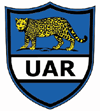 Union de Argentina Rugby: The UAR fought to be a global power and since then has continued to expand its reach. It has officially joined SANZAR and now they have their Super Rugby team. They will get one or two more in all likelihood over the next few years. They are also flexing its might in the Americas and World Rugby. They helped Uruguay find its coach, pushed for the start of the Americas Rugby Championship and helped it find funding. They have risen from the rank of second tier rugby nation and have made an earnest attempt to pull up some of their former peers with them.
Union de Argentina Rugby: The UAR fought to be a global power and since then has continued to expand its reach. It has officially joined SANZAR and now they have their Super Rugby team. They will get one or two more in all likelihood over the next few years. They are also flexing its might in the Americas and World Rugby. They helped Uruguay find its coach, pushed for the start of the Americas Rugby Championship and helped it find funding. They have risen from the rank of second tier rugby nation and have made an earnest attempt to pull up some of their former peers with them.
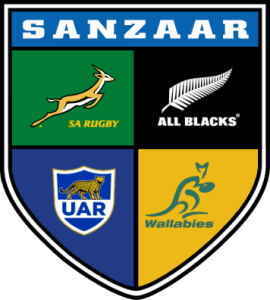 SANZAAR: The term was coined by me, way back in 2012 . It is official that Argentina is now a member organization of what use to be the South African New Zealand Australia Rugby organization. They have elected a new president and have expanded the Super Rugby competition. A lot hangs on how this year’s 2016 Super Rugby competition goes. They may have pushed the envelope a little too far but time will tell on that adventure.
SANZAAR: The term was coined by me, way back in 2012 . It is official that Argentina is now a member organization of what use to be the South African New Zealand Australia Rugby organization. They have elected a new president and have expanded the Super Rugby competition. A lot hangs on how this year’s 2016 Super Rugby competition goes. They may have pushed the envelope a little too far but time will tell on that adventure.
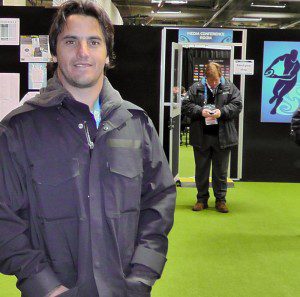
Agustín Pichot: We cannot mention the progress the Argentine rugby union has made without mentioning Agustín Pichot. Pichot is a retired legend of World and Argentine rugby that quickly became a Council Member for the UAR. While there he was also elected to World Rugby’s Executive Committee. Pichot was elected by the World Rugby Council in accordance with the Bye-Laws, replacing Ireland’s Peter Boyle, who stepped down following elections within his union. Though Argentina are no longer a tier 2, he is the most important player for tier 2 nations as he seems well aware of their challenges and hopes, which is a breathe of fresh air.
That’s it for now. Feel free to comment below, look for and “Like” our Facebook Rugby Wrap Up Page and follow us on Twitter@: RugbyWrapUp, Junoir Blaber, DJ Eberle, Nick Hall, James Harrington, Cody Kuxmann, Jaime Loyd, Karen Ritter , Jamie Wall, Jake Frechette and Declan Yeats, respectively.
And as always, stay low and keep pumping those legs.

